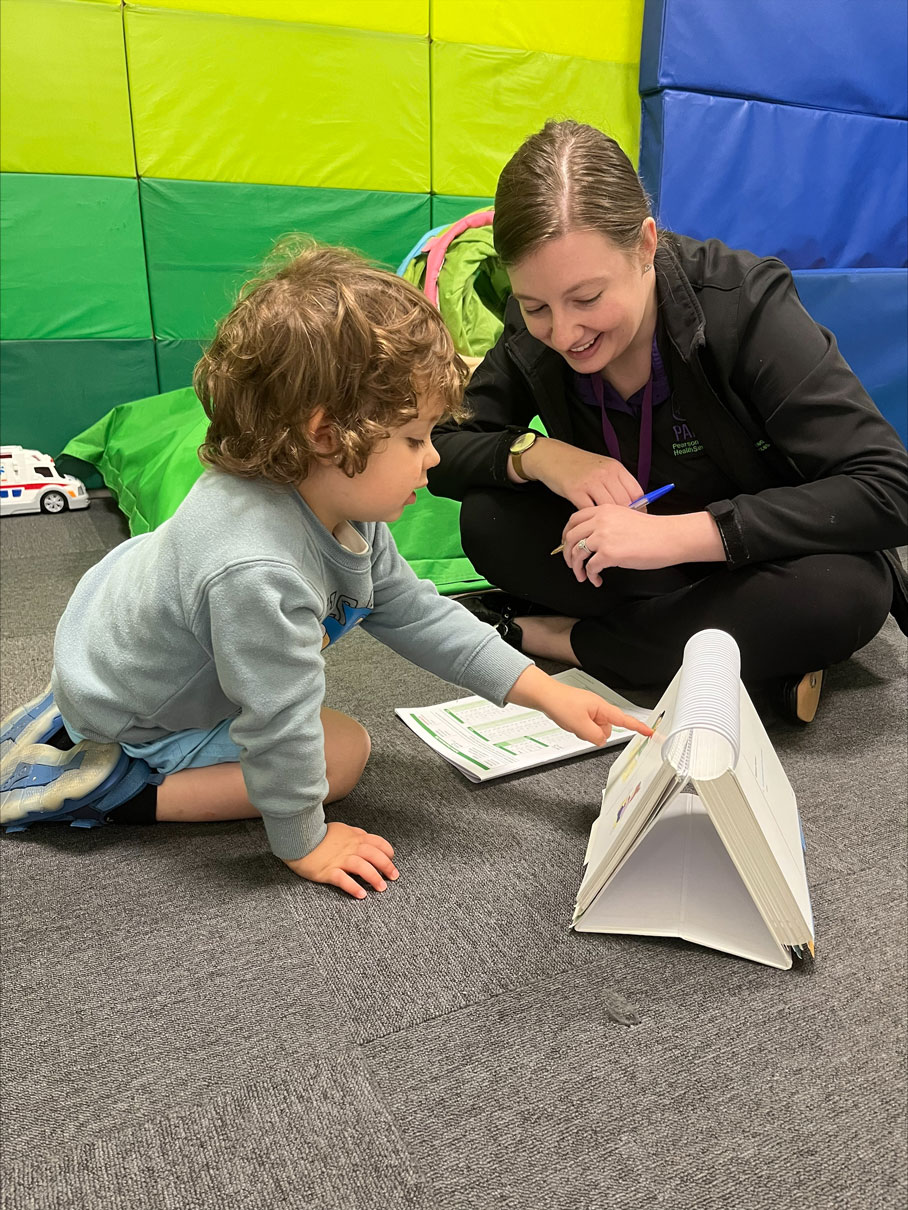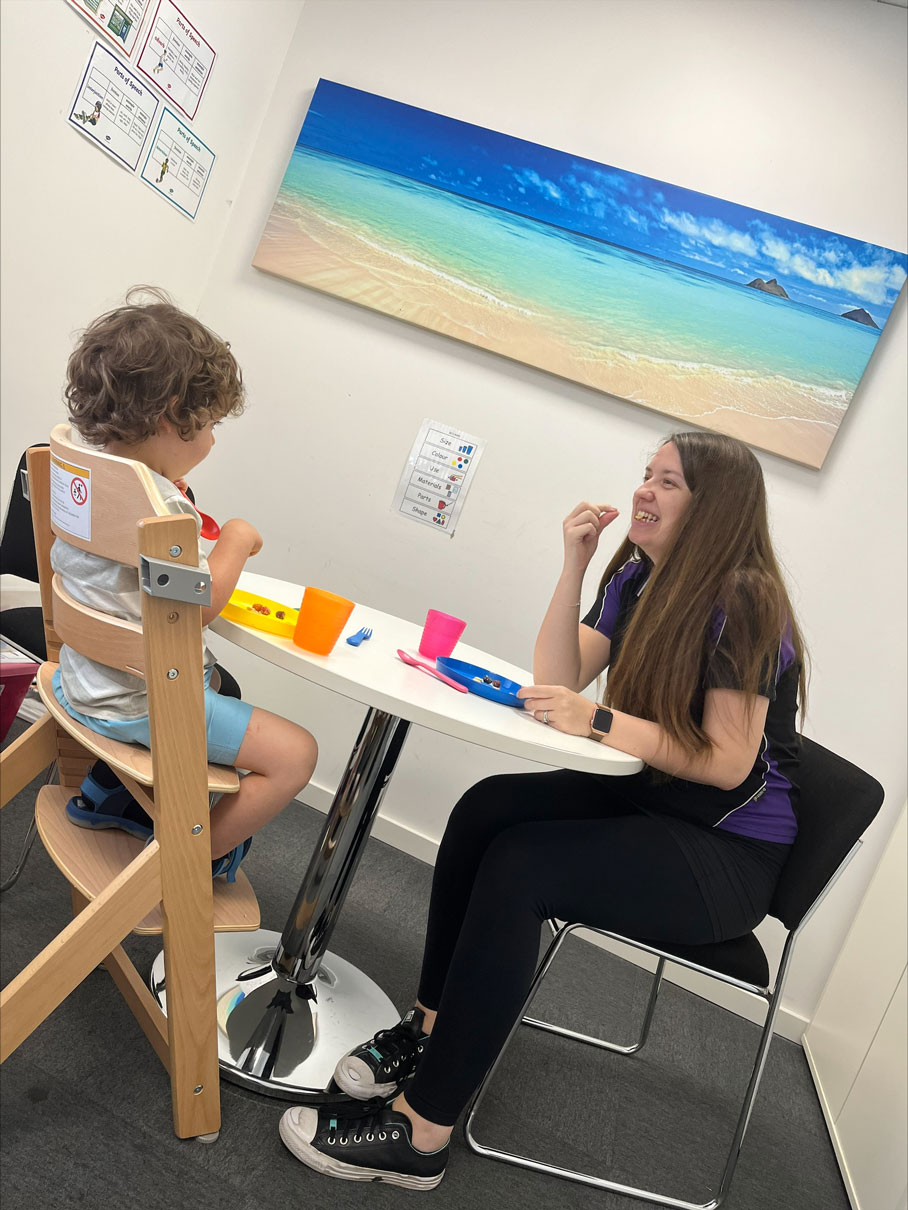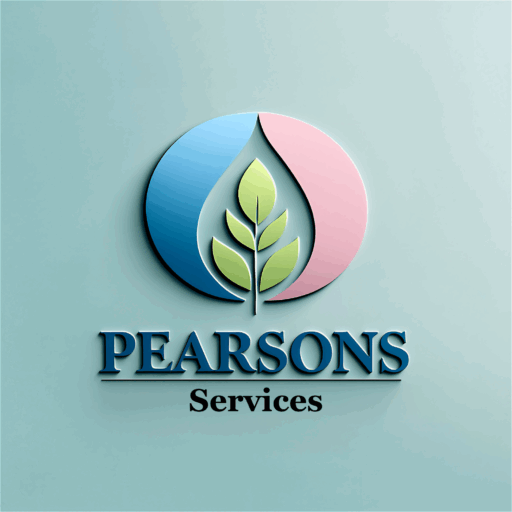Speech Pathology
How can a Speech Pathologist help?
Offering both Adult and Children’s services
Communication is an essential skill to be an active and engaged member of your community. Our Speech Pathologists understand this and can work with you to develop these skills, and if necessary, find alternative means of communication. We will assist in giving every person an opportunity to live their fullest life.
Our services include:
Alternative Communication Devices
Augmentative and Alternative Communication (AAC) are systems that enable a person to develop communication and language skills and can be used as an alternative means of communication.
We can provide:
- Assessment and requests for suitable devices.
- Ongoing training and support for you and your family and caregivers.
Paediatric Feeding Difficulties
Some children can be very sensitive to different textures, temperatures, flavours and colours of foods. They may have difficulties being in the same space as new foods and will sometimes gag on foods that they do try. Children with feeding difficulties can often have a very restrictive diet and struggle to meet their nutritional requirements.
At PAHS we can support families with feeding assessment and therapy sessions with the aim to make meal times less stressful and to support the whole family and the client with strategies and resources to enable them to increase the foods and textures within their diets in a fun and engaging way.
Language, Communication and Social Skills
Language: This is the way we communicate our needs and wants and understand the language being used by those around us. It includes oral, written, verbal and non-verbal modalities.
- Expressive Language: how we use language to express our needs and wants. This can be as simple as communicating yes or no, or as complex as participating in conversations with many communication partners.
- Receptive Language: how we understand the words and language other people use to do things such as following instructions or recalling information from written text.
Speech: is typically broken down into three areas:
- Articulation: how we produce sounds with our lips, teeth and mouth;
- Voice: how we use our breath and vocal folds to create sounds;
- Fluency: the rhythm of speech and repetitions (i.e. a stutter).
Social Skills: The skills we use to communicate and interact with others, including use of appropriate language and non-verbal cues, and understanding the ‘rules’ like turn taking and active listening. These skills also include conflict resolution, problem solving, risk awareness and friendship skills.
Adult Neurological Disorders
- Adult Language problems including Aphasia.
- Parkinson’s Disease.
- Multiple Scleroses.
- Dementia.


